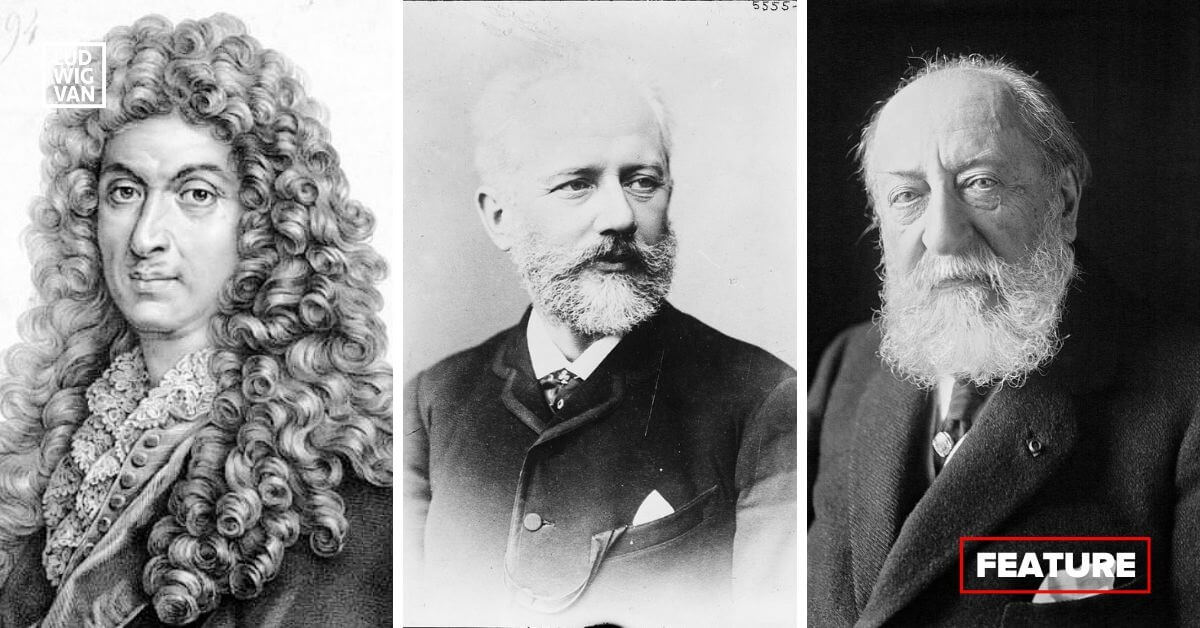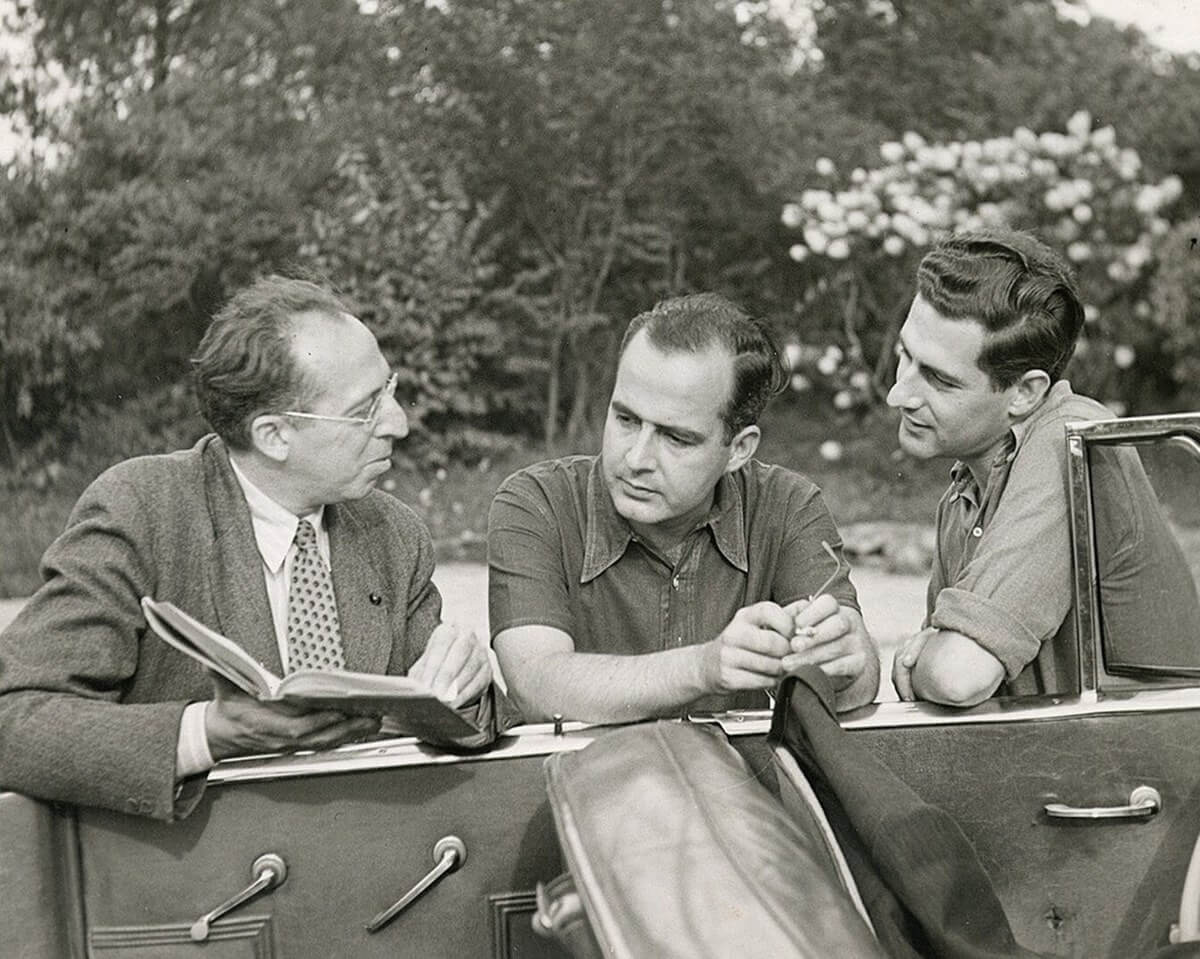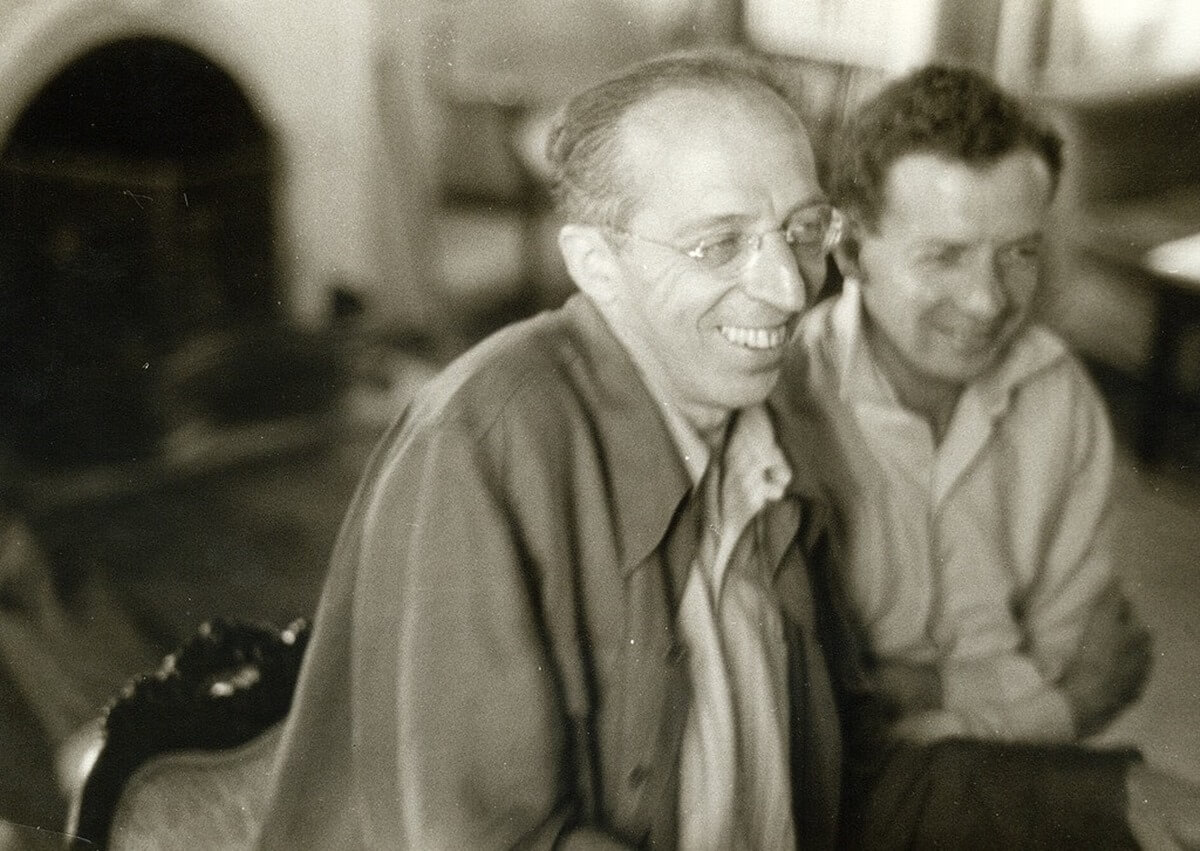
Some of the most recognizable and beloved music in Western culture was created by queer composers — it’s a simple statement of truth. LGBTQ2+ composers have always been part of the classical music world, whether acknowledged or not. For many in past centuries, it meant leading a covert double life.
Here’s a look at some of the many LGBTQ2+ composers who have made significant contributions to the classical music repertoire.
Jean-Baptiste Lully (1632-1687)
Times were different in the 17th century, when sexuality was more fluid in concept. Lully’s rather open bisexuality was tolerated, at least to a certain degree. (More rigid definitions of what it meant to be a man wouldn’t arrive until the next century.) All the same, Louis XIV of France was known to disapprove of Lully’s lifestyle, even as the Italian-born composer became a favourite at his court. Lully is best known for his operas, including many collaborations with his friend playwright Molière. He is credited with creating the Baroque opera as well as the French Overture which became very popular during his time. He also wrote sacred music, and ballets.
Camille Saint-Saëns (1835 to 1921)
Camille Saint-Saëns was a child prodigy before evolving into a composer and conductor, along with a gifted freelance musician. Firmly planted in the Romantic era, Saint-Saëns became best known for his sympohonic poems, as well as specific pieces such as the opera Samson et Dalila and his Symphony No. #3 for the organ. He was a champion of French music, in contrast with the Wagnerian theatricality that was popular during his lifetime. Saint-Saëns’ sexuality was never broached openly, and he married a 20 year old woman when he was 40. After the death of their two children, however, he abandoned her to travel extensively. There were many rumours about his sexuality during his lifetime, not only because his social circle included some of the most prominent gay personalities of the era. He spent his winters in Algeria, which was known as a favoured holiday destination for European gays. He is reported to have stated, “I am not a homosexual, I am a pederast.”
Pyotr Ilyich Tchaikovsky (1840 to 1893)
Pyotr Ilyich Tchaikovsky wrote some of the most beloved music of all time, and was one of the first major Russian composers to achieve international status. He left a legacy of symphonies, operas, ballets, piano concertos and a single violin concerto, overtures, cantatas, choral works, string quartets, a string sextet, and more than a hundred individual piano pieces and songs. His ballets have become iconic works, and his ability to weave Russian themes into the canons of European music had a great influence on the future generation of composers, including Stravinsky. Some of his melodies are among the best known the world over. Due to the tenor of his times, he kept his love life and affairs as secretive as he could, although there were persistent rumours, and he kept the company of openly gay men. His private letters, published in English only recently, reveal his passionate feelings for other men. In Russia, his sexuality is still a subject of debate.

Samuel Barber (1910 to 1981)
American composer Samuel Barber’s works were among the most frequently performed for much of the 20th century. His work was characterized by its lyricism; Barber was also a baritone who sometimes performed his own work in the early days. Barber won the Pulitzer Prize for Music with his first opera, Vanessa, in 1958, and was known for his vocal works, along with orchestral works. He won another Pulitzer for his Piano Concerto No. 1 in 1963. Samuel Barber lived in New York with his partner, composer and librettist Gian Carlo Menotti, who wrote the libretto for three of Barber’s operas. The couple lived together for four decades and remained friends until Barber’s death.
Benjamin Britten (1913 to 1976)
Britten began composing music as a child, and added the piano soon after, along with the viola. Homosexuality was illegal in the UK during Britten’s lifetime, but he wasn’t afraid to broach the topic in his work (Death in Venice) or his life. He lived openly with his partner, singer Peter Pears, who often performed his pieces. Britten is one of the towering figures of 20th century opera, with many famous works including The Turn of the Screw, and A Midsummer Night’s Dream. His operas are considered groundbreaking, and he often confronted social issues in his works, including War Requiem. He also wrote orchestral, chamber, and film music. Britten passed up a ceremonial burial spot at Westminster Abbey so he could be buried with Pears.

Aaron Copland (1900 to 1990)
Aaron Copland has left a legacy of popular classical music with a distinctly American flavour, including his enormously popular Appalachian Spring, and Fanfare for the Common Man. Born to a musical Jewish family in Broooklyn, he later studied in Paris with Nadia Boulanger. Aaron came to accept his sexual orientation early, and kept his personal life very private. Nonetheless, he was known to have had affairs with many musicians, artists, and dancers over his lifetime. He survived the McCarthy years, accused of being leftist, and shifted from composition to conducting. He mentored a generation of American musicians, including Leonard Bernstein.
Wendy Carlos (Born 1939)
American musician and composer Wendy Carlos was born under the name Walter in Rhode Island. She studied composition at Columbia University in New York, working with the Columbia-Princeton Electronic Music Center. She helped to develop the Moog synthesizer, the first commercially available digital keyboard in the Moog family. Carlos rose to prominence with the release of Switched-On Bach in 1968, an album of Bach she performed on the Moog. It not only won her three Grammy Awards, it helped to popularize the instrument. Carlos went on to score major Hollywood movies, including Stanley Kubrick’s A Clockwork Orange (1971) and The Shining (1980). Carlos helped to raise awareness about transgendered people and what they face by going public with her transition in 1979, revealing that she’d been living as a woman since 1968.
#LUDWIGVAN
Get the daily arts news straight to your inbox.
Sign up for the Ludwig van Daily — classical music and opera in five minutes or less HERE.
- PREVIEW | SUMMER OPERA LYRIC THEATRE Presents Handel’s Xerxes, Mozart’s Idomeneo & Puccini’a La Boheme July 26 To August 4 - July 26, 2024
- PREVIEW | YENSA Festival V.2 Offers Black Flames Performances & Other Ways To Celebrate Black Women In Dance - July 25, 2024
- PREVIEW | Canadian Talent Conspicuous In The Met: Live In HD 2024-25 Season - July 25, 2024



